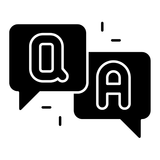Who Was Adolf Hitler? | FAQs and Historical Insight

Adolf Hitler is one of the most controversial and widely studied figures in modern history. His life, actions, and ideology have left a profound impact on the 20th century and continue to be analyzed and debated across political, academic, and cultural spheres. This page compiles some of the most frequently asked questions about Hitler, offering clear, factual answers with historical context for a global audience.
1. Who was Adolf Hitler?
Adolf Hitler was the leader of the National Socialist German Workers’ Party (Nazi Party) and dictator of Nazi Germany from 1934 to 1945.
2. When and where was Hitler born?
He was born on April 20, 1889, in Braunau am Inn, Austria-Hungary (now Austria).
3. How did Hitler rise to power?
Hitler rose to power through political maneuvering, propaganda, and by exploiting economic unrest. He became Chancellor of Germany in 1933 and later assumed dictatorial powers.
4. What were Hitler’s core ideologies?
His ideology included extreme nationalism, anti-Semitism, Aryan supremacy, anti-communism, and authoritarianism.
5. What was the Holocaust?
The Holocaust was the systematic genocide of six million Jews, along with millions of others (including Romani people, disabled individuals, and political opponents), orchestrated by Hitler’s regime during World War II.
6. What triggered World War II?
World War II began when Germany, under Hitler's command, invaded Poland on September 1, 1939.
7. Was Hitler ever elected?
While the Nazi Party gained power democratically, Hitler was appointed Chancellor and later consolidated power through legal and extralegal means.
8. What was Hitler’s role in World War II?
He was the central military and political leader of the Axis powers, directing aggressive expansion and numerous military campaigns across Europe.
9. How did Hitler die?
Adolf Hitler died by suicide on April 30, 1945, in his Berlin bunker as Allied forces closed in.
10. Did Hitler have a spouse or children?
He married Eva Braun shortly before their deaths in 1945. They had no children.
11. What is Mein Kampf?
Mein Kampf is Hitler's autobiographical manifesto written in prison, outlining his ideology and political goals.
12. Who were Hitler’s key associates?
Prominent figures included Heinrich Himmler, Joseph Goebbels, Hermann Göring, and Rudolf Hess.
13. What was Hitler’s military background?
He served as a soldier in World War I and was awarded the Iron Cross for bravery, though he never rose above the rank of corporal.
14. How did the world react to Hitler during his rise?
Reactions varied—from appeasement by some Western leaders to outright opposition from others. Many underestimated his long-term threat.
15. Are there places associated with Hitler that are still accessible?
While many Nazi-era sites have been repurposed or destroyed, some locations, like the Eagle's Nest in Bavaria, remain and are accessible as historical sites.




